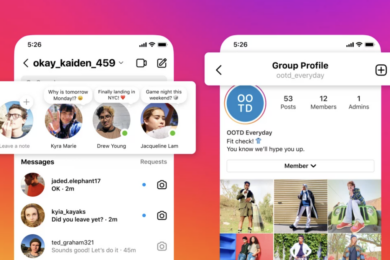
The Benefits of Marketing Automation for Streamlined Operations
Marketing automation has become an essential tool for businesses looking to streamline their operations. With the ability to automate repetitive tasks, businesses can focus on more important tasks such as strategy and creativity. One of the biggest benefits of marketing automation is the ability to offer a personalized experience to customers. By collecting data on customer behavior and preferences, businesses can deliver targeted messages that resonate with their audience.
Selecting the Right Tools for Marketing Automation
Choosing the right marketing automation tools can be overwhelming. There are many options in the market and it’s important to evaluate each one based on your business needs. It’s important to consider factors such as the features offered, ease of use, customer support and pricing. Before making a decision, it’s advisable to compare different options and read reviews from other users.
Measuring the Effectiveness of Marketing Automation
Measuring the effectiveness of marketing automation is crucial to understanding its impact on your business. It’s important to set clear goals and metrics beforehand, such as lead generation, conversion rates or email open rates, and track them regularly. This will help you identify areas that need improvement and make necessary changes to optimize your campaigns. Additionally, it’s important to analyze data and generate reports to gain insights which can guide future marketing decisions.
Personalization and Customer Engagement through Marketing Automation
Personalization and Customer Engagement through Marketing Automation
Marketing automation has become an essential tool for businesses to streamline their operations and offer a personalized experience to their customers. Through the use of marketing automation, businesses can automate their marketing processes, which helps them save time and resources.
Personalization is one of the key benefits that businesses can derive from marketing automation. Automated systems allow businesses to collect data on their customers, such as their demographics, preferences, and behaviors, which can be used to create targeted marketing campaigns specific to each customer. By personalizing their marketing campaigns, businesses can improve customer engagement, increase customer retention and ultimately, boost revenue.
To select the right marketing automation tools, businesses should consider several factors such as the size of their business, their budget, and the features they require. Some of the features that businesses should look for in marketing automation tools include email marketing, social media management, lead generation, and analytics. It’s also important to choose a vendor with a good reputation and reliable customer support.
Measuring the effectiveness of marketing automation is critical to its success. Businesses should set clear performance metrics and track their progress over time. Metrics such as conversion rates, website traffic, and social media engagement can help businesses gauge the effectiveness of their marketing automation efforts. Regularly analyzing these metrics will enable businesses to fine-tune their marketing campaigns and improve their overall ROI.
Overall, marketing automation offers several benefits to businesses looking to streamline their operations and build customer engagement. By selecting the right automation tools and measuring their effectiveness, businesses can unlock the full potential of marketing automation and take their business to the next level.
Selecting the Right Automation Tools for Your Business Needs
Selecting the Right Automation Tools for Your Business Needs
Marketing automation can streamline operations and offer a personalized experience to customers. However, choosing the right automation tools is crucial to ensure that you are getting the most out of your investment.
Here are some tips for selecting the right tools:
Determine Your Business Needs
Before selecting any automation tool, it is important to determine your business needs. Identify the areas where you require automation. For instance, if you need to automate email marketing, look for tools that specialize in email marketing automation.
Consider the Features of the Tool
While selecting an automation tool, consider its features. Look for tools that offer features such as lead scoring, social media integration, and analytics. Choose a tool that offers features customized to your specific needs.
Measure the Effectiveness of the Tool
Measuring the effectiveness of a tool is important to justify its cost. Measure metrics like click-through rates, conversion rates, and revenue generated to understand the effectiveness of the tool. Additionally, seek feedback from employees or customers who use the tool regularly.
In summary, selecting the right automation tools requires identifying business needs, considering tool features, and measuring the effectiveness of the chosen tool. By following these guidelines, businesses can streamline operations, personalize customer experiences, and achieve their marketing automation goals.
Measuring the Effectiveness of Your Marketing Automation Strategy
Streamlining Operations and Personalizing Customer Experience
Marketing automation is a powerful tool that can streamline operations and offer a personalized experience to customers. By automating certain tasks such as lead nurturing, email campaigns, and social media posting, businesses can save time and resources while still engaging with customers in a meaningful way. With marketing automation, businesses can also track customer behavior, such as website visits and email opens, to create tailored content and offers that speak directly to their interests and needs.
Selecting the Right Tools
When selecting marketing automation tools, it’s important to consider your business needs and goals. Some popular options include HubSpot, Marketo, and Pardot, which offer a range of features from email marketing and lead scoring to social media management and analytics. It’s also important to evaluate the ease of use and compatibility with your existing systems, such as your CRM software.
Measuring Effectiveness
To measure the effectiveness of your marketing automation strategy, you should establish clear goals and key performance indicators (KPIs) such as lead conversion rates or click-through rates. Use analytics tools to track and analyze data such as email open and click-through rates, website traffic, and social media engagement. By regularly monitoring these metrics, you can make informed adjustments to your strategy and optimize for better results. Remember that the ultimate goal of marketing automation is to create a seamless and personalized experience for your customers, so always be mindful of how your efforts are impacting their engagement and satisfaction.
Common Mistakes to Avoid when Implementing Marketing Automation
Common Mistakes to Avoid when Implementing Marketing Automation
Implementing marketing automation can streamline operations and offer a personalized experience to customers. However, there are common mistakes that businesses make which can affect the success of their automation strategies.
Selecting the Right Tools
Before selecting marketing automation tools, businesses must understand their specific needs and goals. They should determine which tasks they want to automate, and which channels they want to use. It is important to choose a solution that integrates with existing systems and offers features that meet the business’s requirements.
Measuring the Effectiveness of Marketing Automation
Measuring the effectiveness of marketing automation is a critical step in the implementation process. Businesses must define clear metrics to track and evaluate the success of their strategies. Some key metrics to consider include lead generation, conversion rates, revenue growth, and customer engagement. It is also important to regularly review and analyze these metrics to identify areas for improvement and adjust strategies accordingly.


















